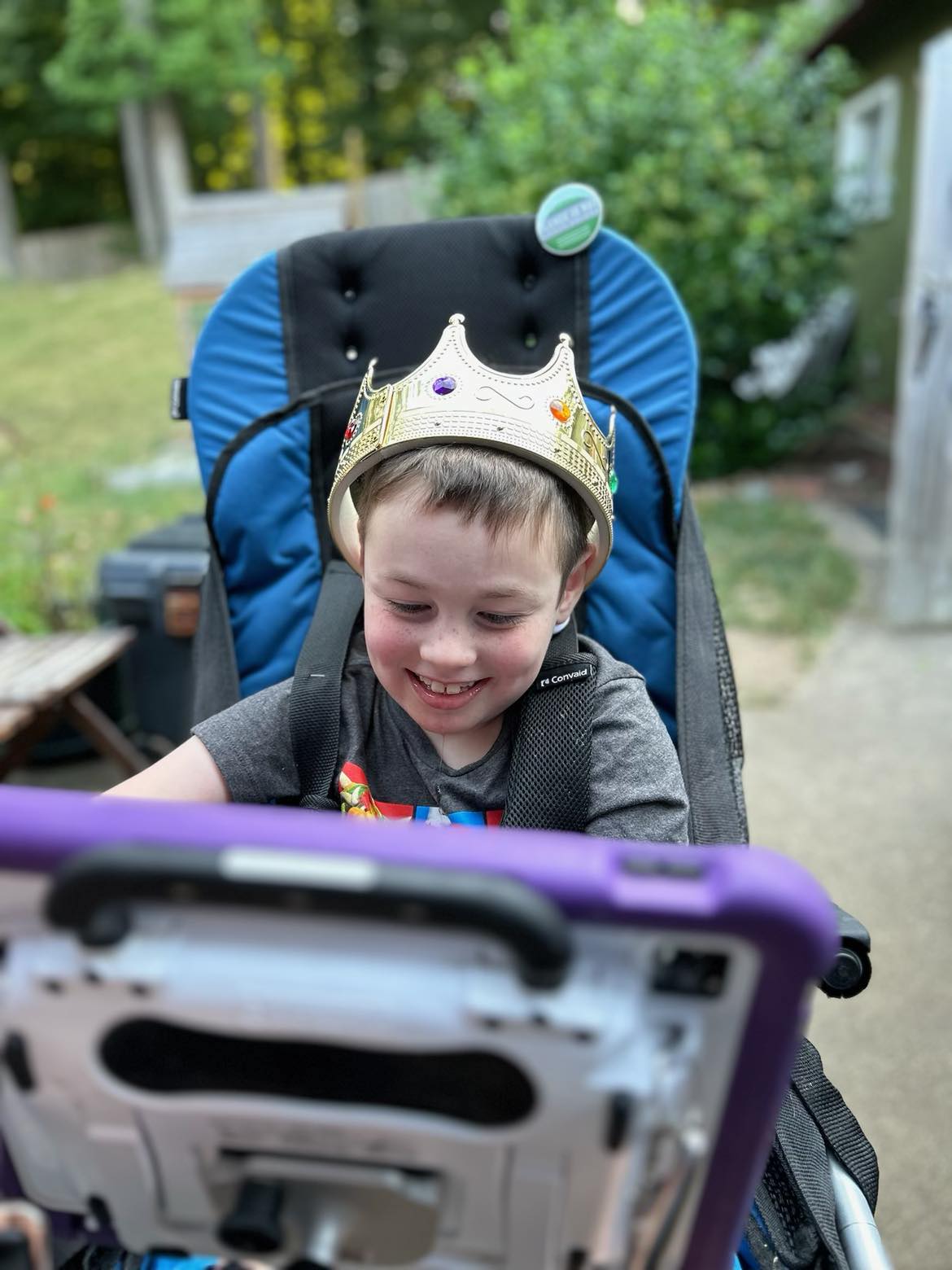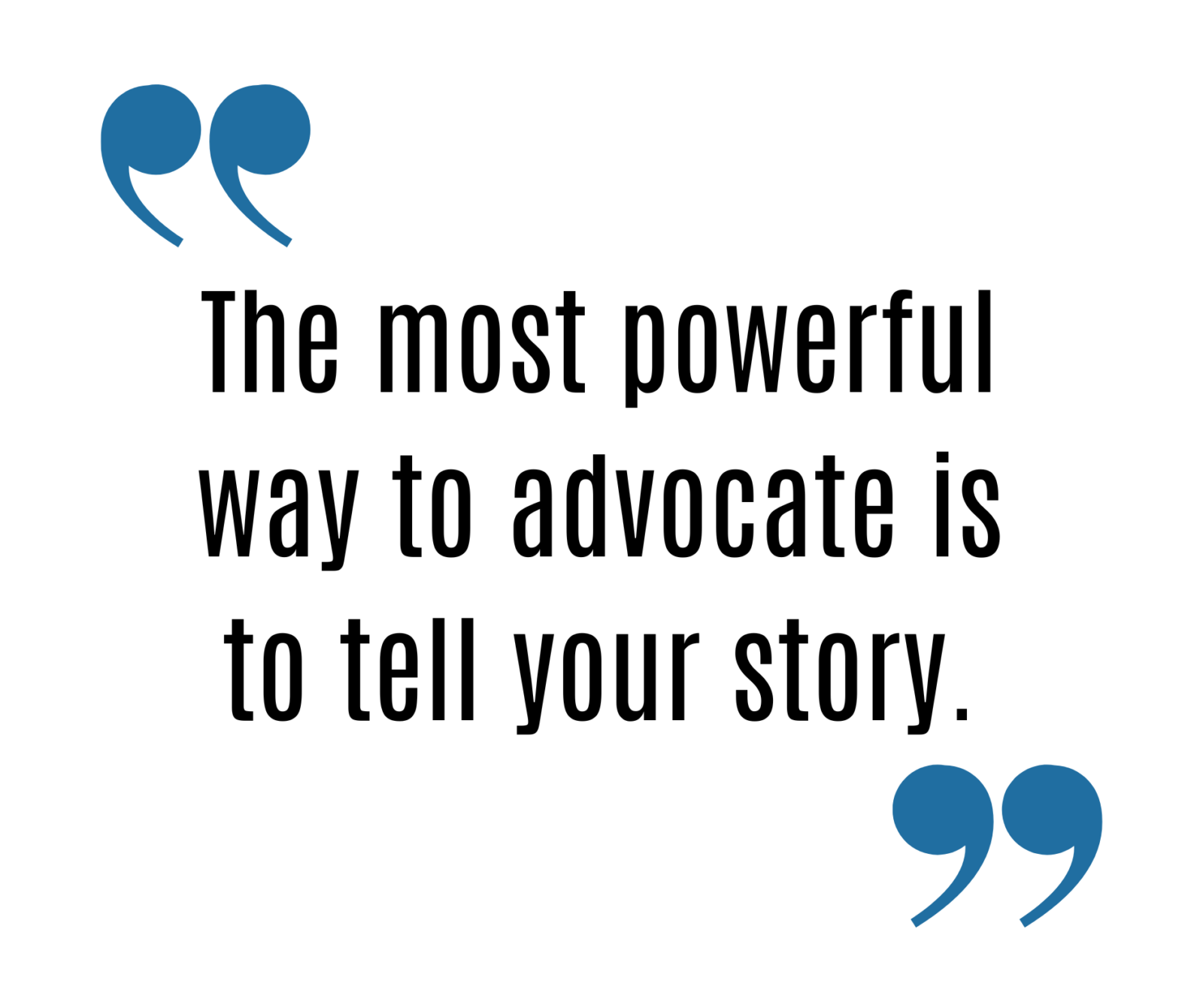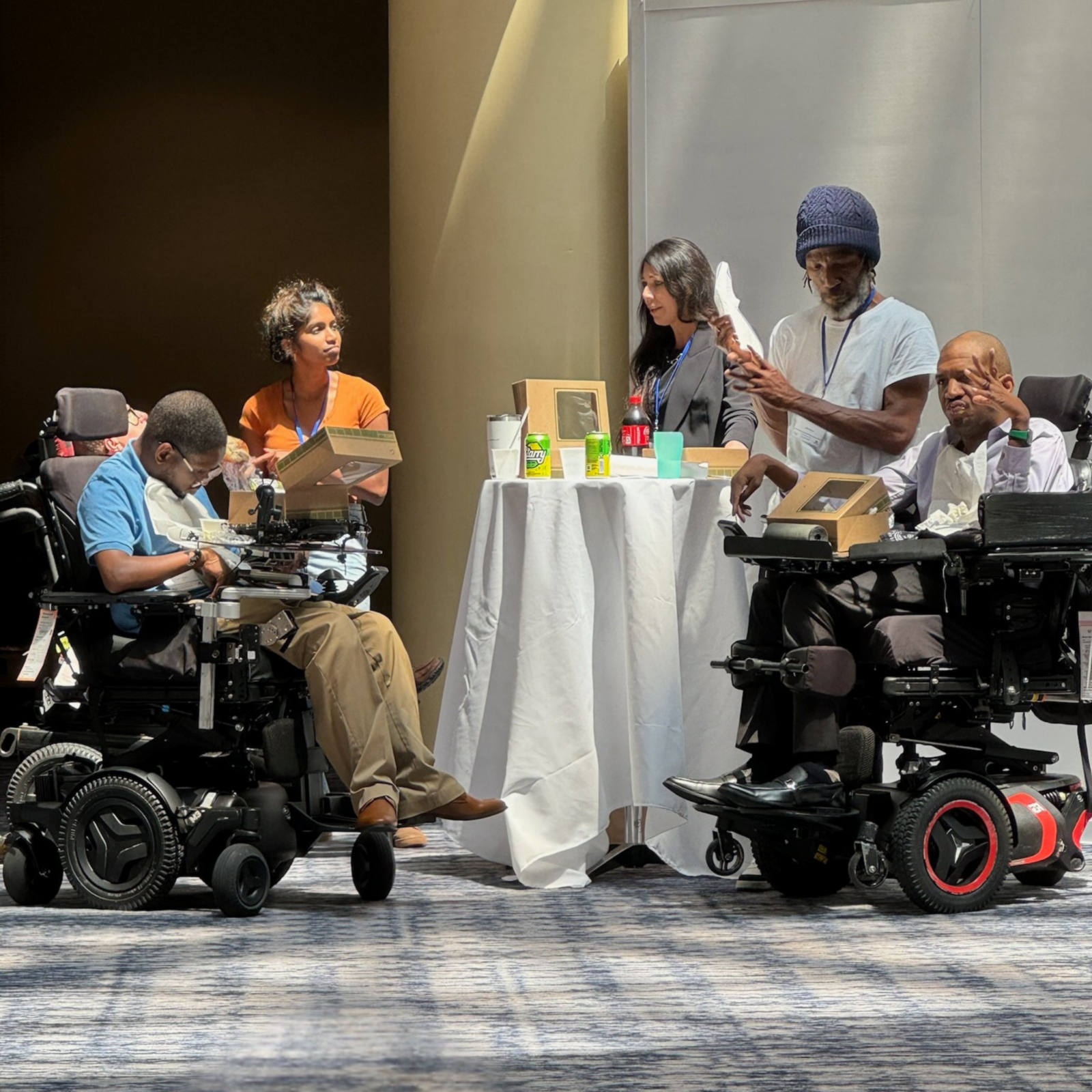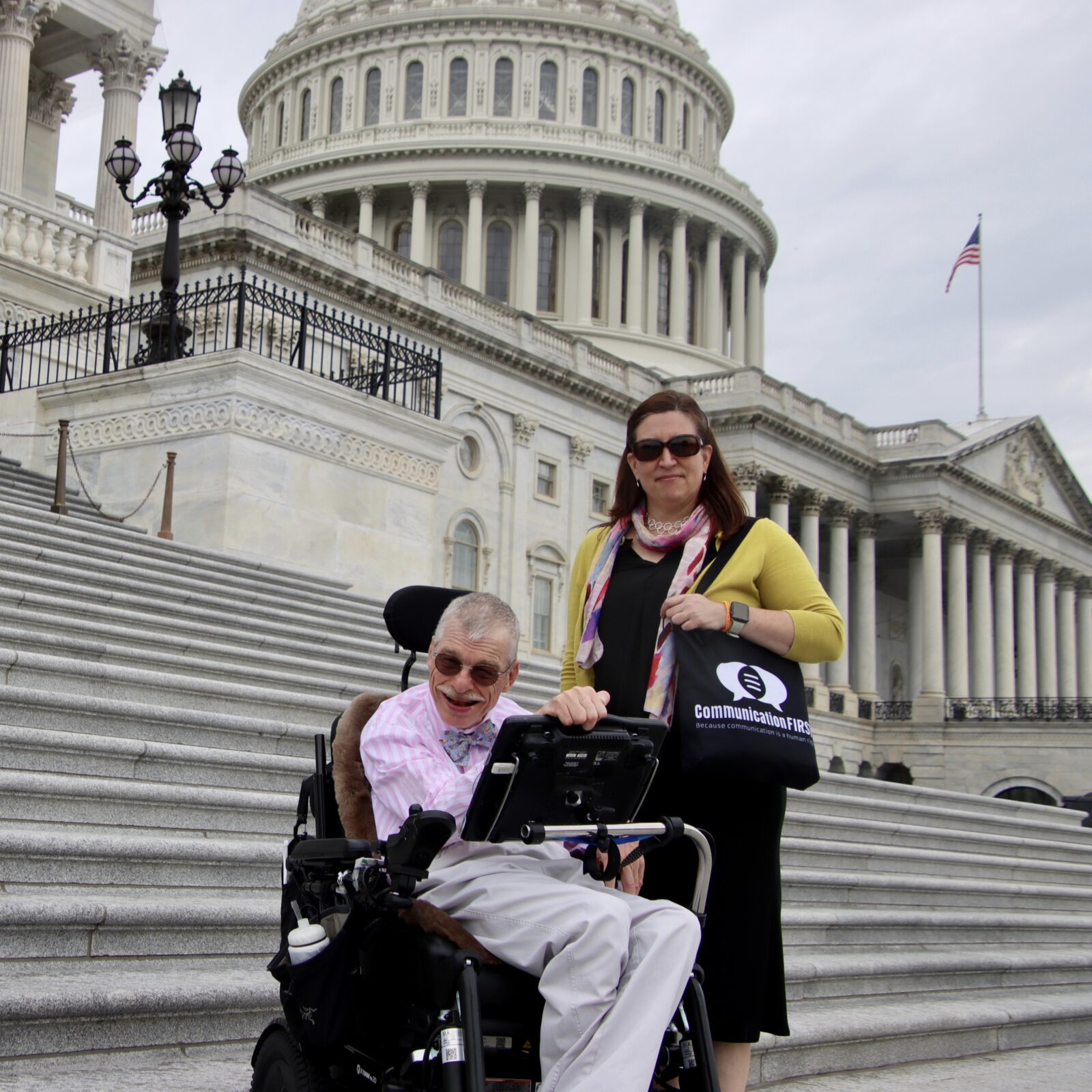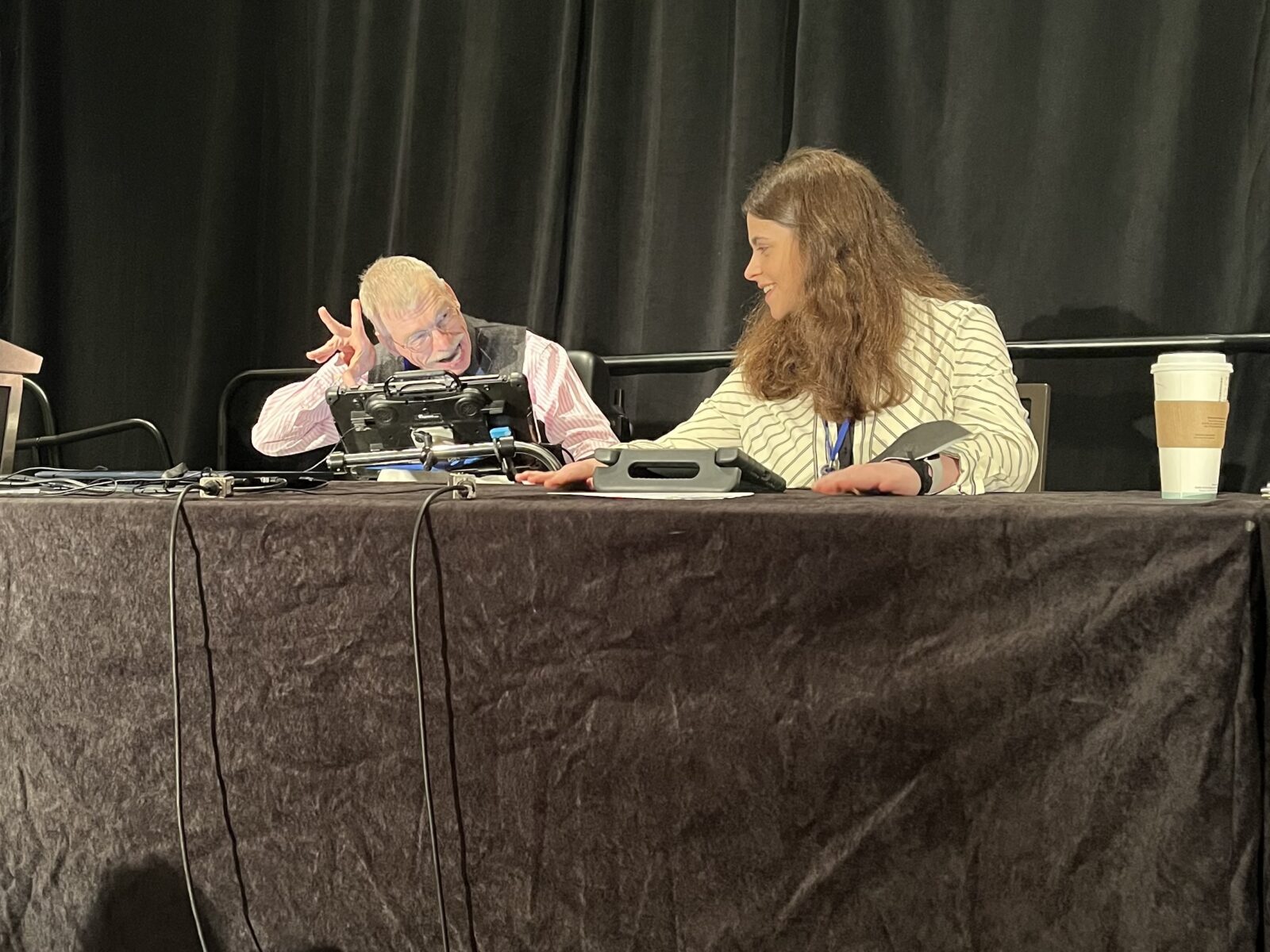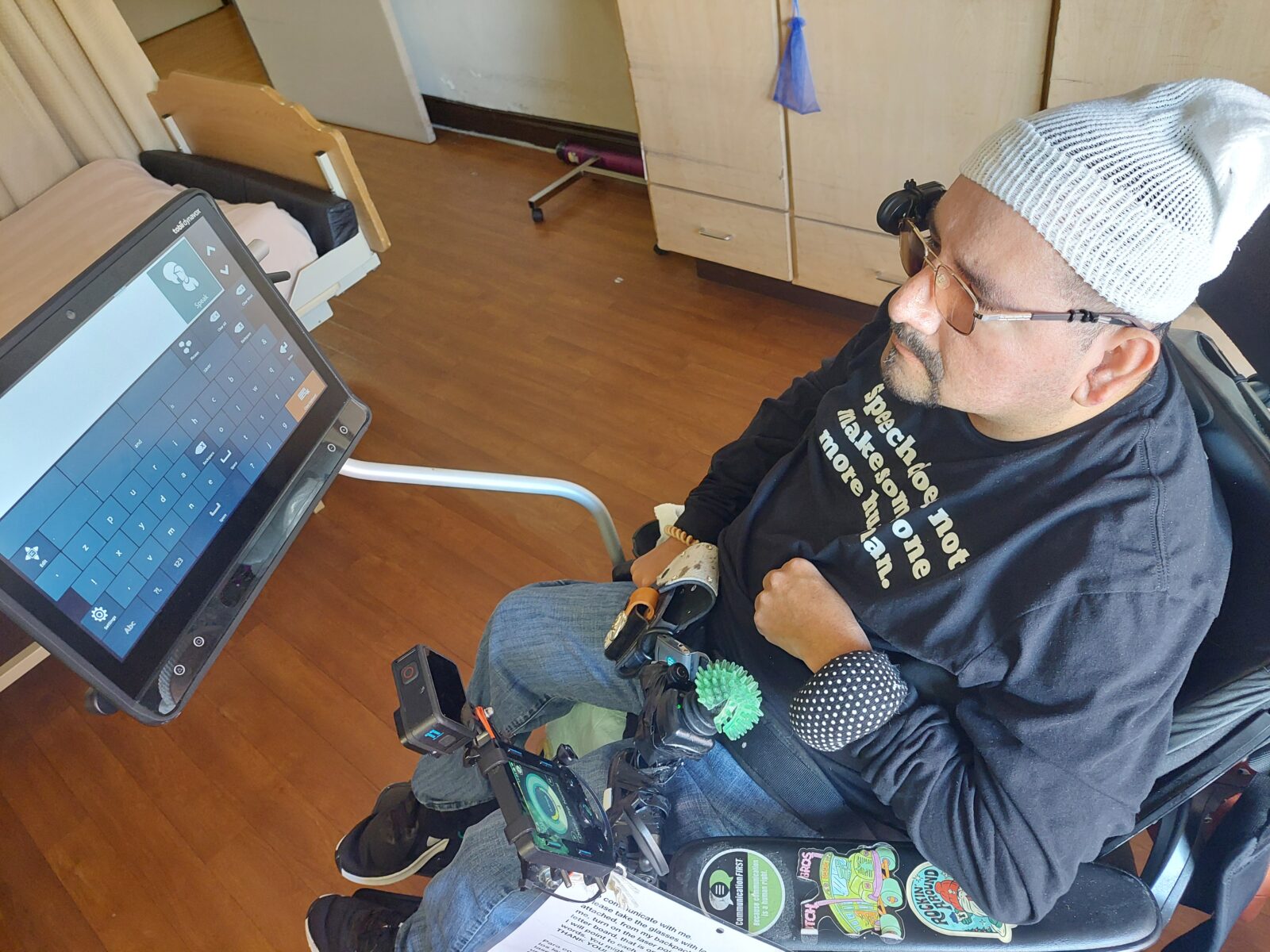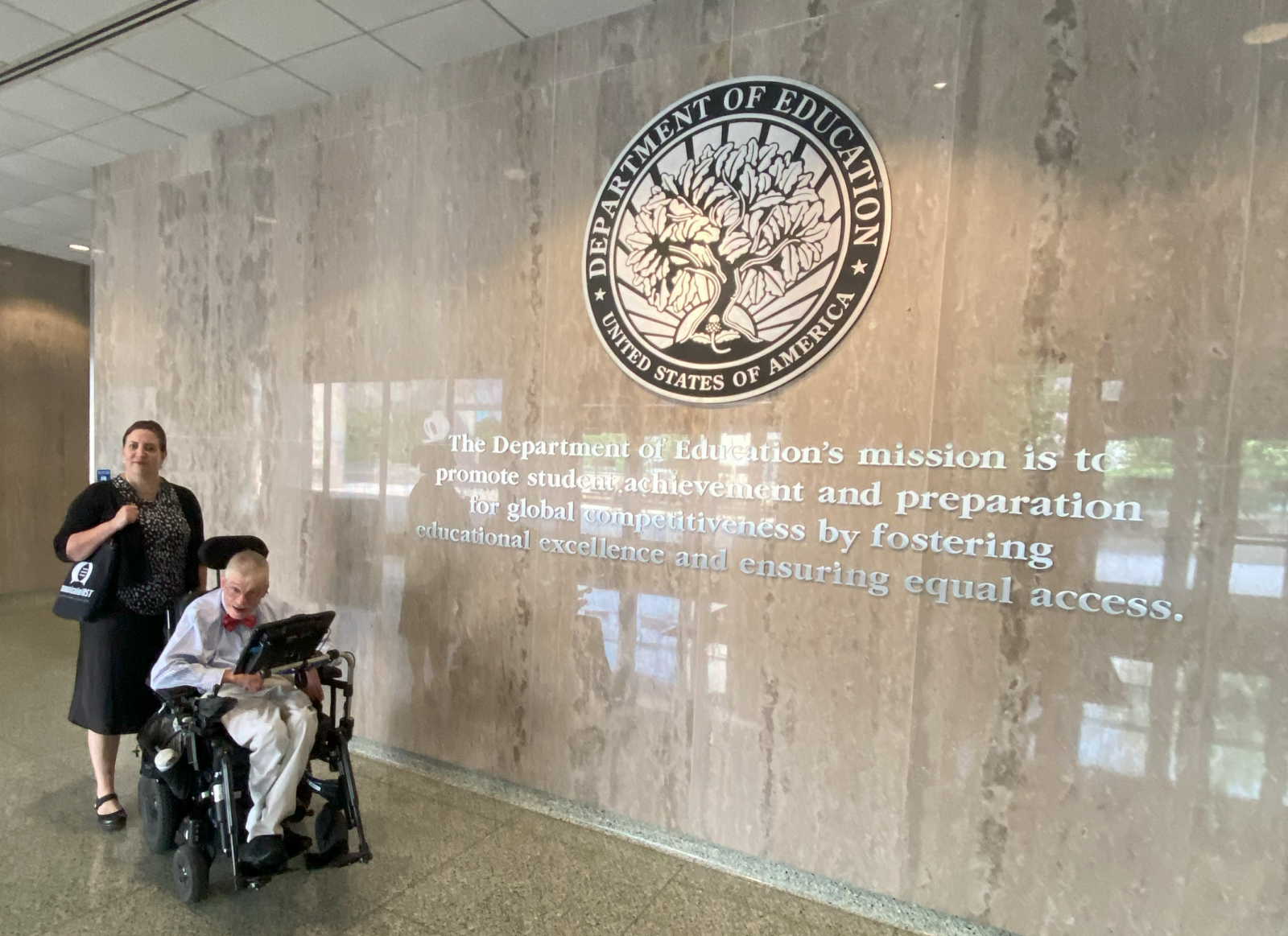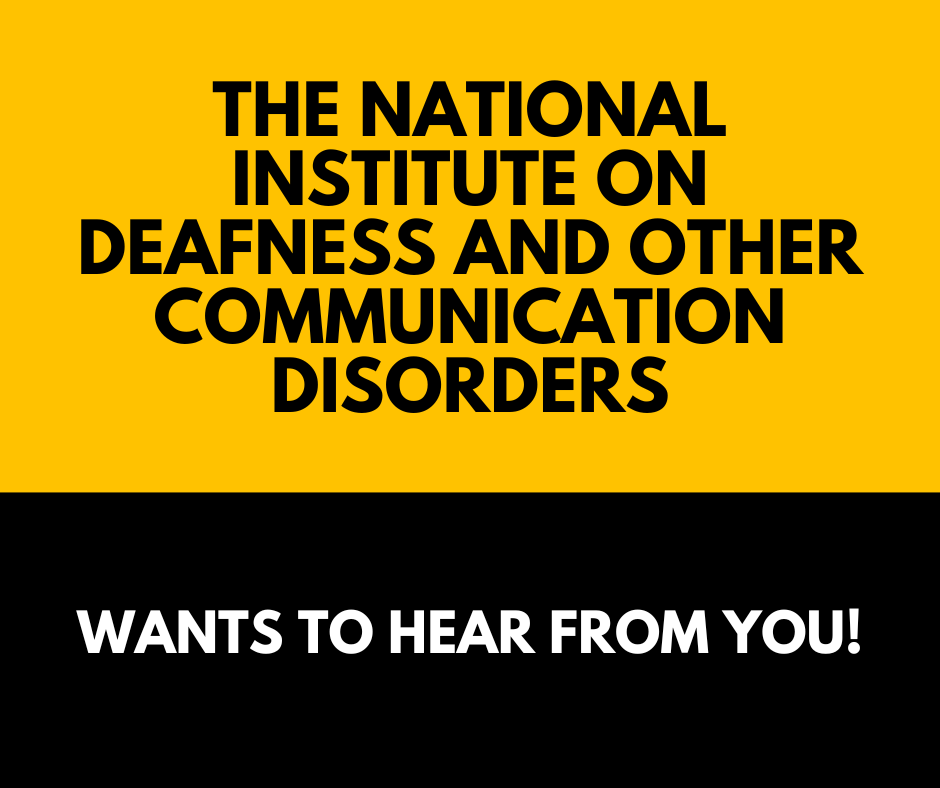This webinar first aired on October 15, 2024, and begins with a screening of CommunicationFIRST’s latest See Us, Hear Us film featuring Bob Williams. It is followed by a discussion among CommunicationFIRST Policy Director Bob Williams, Forest Haven Institution survivors Ricardo Thornton and Donna Thornton, and advocate and ally Rebecca Salon.
Earlier this week, Virginia adopted its first law expressly addressing augmentative and alternative communication (AAC). Read our summary and statement of the law here.
Read CommunicationFIRST’s statement in response to the planned elimination of the Administration for Community Living.
Medicaid is at risk! Your elected representatives need to hear how losing your Medicaid waiver would change your life. This Policy Advocacy for AAC Users toolkit provides some tips.
Share how Medicaid cuts would hurt you or those around you who need Medicaid to stay in the community. We put together some resources from our amazing partners to make this easy!
In celebration of Bill of Rights Day, Bob Williams reflects on the power free expression holds for those of us who cannot rely on speech alone to be heard and understood.
Bob Williams’s Literacy and AAC presentation was first given at the Future of AAC Research Summit on May 14, 2024, in Arlington, Virginia.
CommunicationFIRST held a brainstorming session to begin to identify some of the “good, bad, and ugly” ways technologies can uniquely impact people with speech-related disabilities.
CommunicationFIRST publicly recruited a diverse group of AAC users who were willing to be interviewed on camera about their priorities for AAC research.
In a first-of-its-kind event held May 13-14, 2024, people with speech-related disabilities from around the U.S. told senior federal officials and researchers how future research dollars should be prioritized.
Government websites and apps are a central lever for exercising our civic and constitutionally grounded rights and responsibilities of freedom of expression, assembly, grievance, petition, protest, jury duty, and the franchise. As a matter of right and necessity, people who need AAC must be afforded equally effective access to state and local government websites and apps that all others are afforded.
Last month, CommunicationFIRST submitted extensive input to one of the largest federal government funders of AAC-related research — the National…
Invited Remarks of CommunicationFIRST Policy Director Bob Williams to the Federal Communications Commission Task Force to Prevent Digital Discrimination September 14, 2023 Gallaudet…
I escaped the very worst that hundreds of thousands of baby boomers like me endured: institutionalization, isolation, illiteracy, and silencing. We believe that many — and likely most — young people needing AAC today are suffering virtually the same fate I escaped over 50 years ago.
We encourage as many AAC users as possible to share your research priorities with NIDCD.


